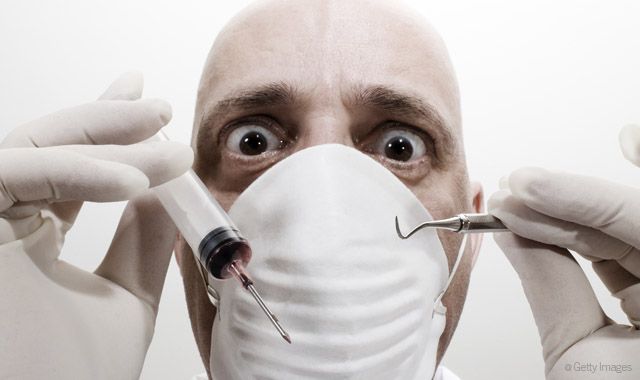5 ways to handle a challenging boss in the dental practice
Politically, it isn’t smart to “bash” the person in the dental practice who writes your paycheck but, let’s face it, we all know he or she exists … and can cause your day to be horrid.

There are certain things you are not supposed to talk about. One is your boss. Politically, it isn’t smart to “bash” the person who writes your paycheck but, let’s face it, we all know he or she exists … and can cause your day to be horrid.
The real question is … what can you do about it? Note before we go further here: I may be snarky with these responses, but please look past that and consider the pearls of wisdom I am doling out.
1. Stay out of the splash zone
Sometimes, you just need to keep a low profile and stay out of the line of fire when you can. In a dental practice, I know that can be easier said than done. Let’s be honest … some bosses shouldn’t be bosses. They get to where they are for a whole slew of reasons. Know the politics of your practice and know who the power people are. You and I both know that there are favorites and some who can do no wrong (shy of embezzlement). Make sure that you keep your anger in check. Sometimes, you just have to laugh to yourself and be amazed at how the real world works.
More from the author: What is the first impression a patient has of you?
2. Reverse psychology
Be careful with this one. Reverse psychology doesn’t work if there is any sarcasm exhibited. Do the opposite of what is being said or asked. Focus on the point of contention and go above and beyond if you can. If you are being chewed out for not sterilizing the equipment properly, make sure you learn how to do it correctly and don’t let that happen again. Be proactive.
3. Vent at home
Do not, I repeat, do not kvetch to your co-workers. It amazes me over and over again how often you trust your work family … and then you get burned. It isn’t intentional, but there is no sense of privacy in a dental practice (surely you know this by now). Vent to your family or to the friends with whom you don’t work. Also, don’t vent on social media for the world to see. Protect your reputation. Face it … you need to always function as the professional and take the higher road. Plaster a smile on your face and hone up on your acting skills. This is called “workplace survival.”
More from the author: The 7 most annoying things about your practice's waiting room
4. Be open-minded
Take feedback - good, bad, and ugly - with open arms. Maybe the message is correct, but the delivery could SIGNIFICANTLY be improved. I don’t know about you, but I take it personally when I am criticized. But, when I get past my “hurt feelings,” usually there is a lesson to be learned within. The key is whether or not you are open as a professional for constructive criticism. Yes, sometimes, it is just mean-spirited, but not always.
More from the author: The top 10 things patients think when they're sitting in your chair
5. Grow up
My philosophy is always to have a conversation. It is that simple. Maybe it isn’t always the easiest thing to do, but you have to try this for your own sanity. It’s not always easy to say, “Can we talk?” It is a conversation that should be done in the privacy of an office. It should start with “I feel…” and describe how you are feeling about a certain situation. It needs to happen shortly after an incident. Otherwise, the memory goes fuzzy the longer the time is from incident to conversation. If you notice, I am not referring to it as a “confrontation.” It is a conversation, but you need to start it. Think about it. Let’s say you don’t start it. Is the incident going to end up as part of a paper trail down the road that helps you get booted out of this job? That is why I say you must grow up. Deal with the situation and come up with solutions as to how the problem will get resolved and not repeated.
Let me know what you think of these ideas at diana2@discussdirectives.com. And remember, when there is hope and determination, things can change.
How Dentists Can Help Patients Navigate Unforeseen Dental Care
December 12th 2024Practices must equip patients with treatment information and discuss potential financing options before unexpected dental treatments become too big of an obstacle and to help them avoid the risk of more costly and invasive procedures in the future.